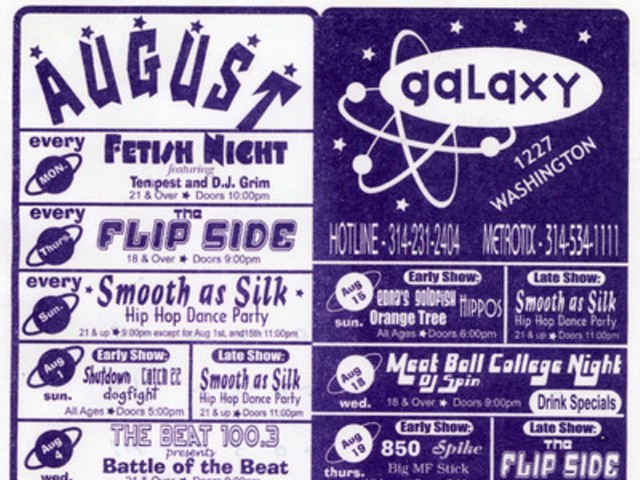On September 19 and 20, the Saint Louis Symphony Orchestra will be performing Howard Shore’s The Lord of the Rings Symphony. The folks at Powell Hall are hoping the adapted score of Peter Jackson’s blockbuster movies will net them a wider-than-usual audience. (So far, so good: The shows, which represent the St. Louis debut of Shore’s symphony, are already sold out.) Whether or not the masses turn up, one thing is fo’ sho’: The fantasy geeks are on it.

Kathleen McLaughlin of the Riverfront Times spoke recently with Paul Hahn, an amateur scholar of the elven languages (Quenya and Sindarin) that J.R.R. Tolkien invented and used in his books. The 41-year-old Hahn is also a classical music singer, a baritone who performed with the St. Louis Symphony Chorus from 1986 to 1998. (He returned to the Chorus solely to perform The Lord of the Rings Symphony, and is also volunteering as its language coach.) Read the following Q&A for details on a fantasy geek’s wet dream.
Kathleen McLaughlin: Can you tell me about your reaction upon hearing that The Lord of the Rings Symphony was coming to St. Louis? Paul Hahn: I know a lot of singers. I heard through the grapevine this was being done.
(Note: Hahn, who has degrees in music and computer science, works at Washington University’s Gaylord Music Library. He saw chorus director Amy Kaiser at the music library one day this summer and said, “Who do I have to kill to get in on this?”)
If you hadn’t volunteered, how would the chorus have learned to pronounce elvish? They probably would’ve just muddled along with what was on the Web. There are, frankly, a lot of transcription errors in this chorus. Plus, the composer seems to have been rather cavalier in the way he set the text. If you were setting a language that real people actually spoke, you would never do these things to it.
How long ago did you master elvish? Well, I wouldn’t exactly say I’ve mastered it. My command of elvish is about the same as any singers’ is of the various languages we sing in -- which is to say, I know how to prounounce it, but I don’t always know what I’m talking about.
There are real Tolkien linguists who I cannibalized for this [project]. David Salo, who prepared these texts, is one of the big ones. They took what Tolkien gave us and had to extrapolate it because he didn’t give us a complete-enough vocabulary.
How long have you studied Tolkien’s works? I should’ve brought my copy of The Silmarillion (Tolkien’s history of the elves) – the front cover’s actually fallen off. I’ve been reading Tolkien my whole life. I’ve read them, almost all of them, aloud to my wife.
As a musician and Tolkien scholar, what do you think of Shore’s musical score? The music’s very good. Wagner’s Ring is known for being very complex. There’s a little musical motif associated with each character and certain themes. He’s done something similar to that – The Ring has it’s own leitmotif; there’s a theme for the Fellowship, and a theme for a lot of the characters.”
What does the ring’s leitmotif sound like? [after whistling the piece] I read somewhere the composer has it rising-falling, as if it were breath because he wanted to convey that the ring was a living thing.”
Do you ever speak elvish with friends? Not in conversation. [Tolkien] doesn’t give us enough vocabulary to try to do that. I like reading the poems. I like reading the words. This is a song cycle I actually used for my audition: [The Road Goes Ever On, a song cycle composed by Donald Swann in cooperation with Tolkien] “I Sit Beside the Fire” is the piece that I sang.
[Listen to Paul Hahn sing this piece a capella; download an MP3 here, stream below.]Do you know anyone else in St. Louis who speaks elvish? I don’t personally know any others, but I’m sure they’re out there. The local big sci-fi convention [Archon] is at the beginning of October. I’m sure I’ll be running into people there who have some knowledge.





